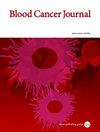Sex-specific dysregulation of exosomal non-coding RNAs drives multiple myeloma progression.
IF 11.6
1区 医学
Q1 HEMATOLOGY
引用次数: 0
Abstract
Multiple myeloma (MM) is characterized by the clonal proliferation of plasma cells in the bone marrow. Although the precise molecular mechanisms differentiating men and women in MM are not fully understood, uncovering these differences is crucial for improving personalized therapeutic approaches. Here, we show sex-specific dysregulation of exosomal non-coding RNAs (ncRNAs) in MM. We conducted an in-depth analysis of dysregulated ncRNAs in male and female patients, as well as MM cell lines, revealing distinct expression signatures across multiple clinical contexts, including newly diagnosed, relapse, progression, Hyperdiploid, non-Hyperdiploid, and treatment exposure. Our findings highlight the pivotal roles of lncRNAs and miRNAs in MM pathogenesis, detecting alterations in enriched pathways that influence key biological processes such as cellular proliferation, apoptosis, and gene regulation. We established a panel of ncRNAs with distinct sex-specific expression patterns, significant effects on mRNA regulation, and involvement in MM-associated biological pathways. Our results demonstrate that exosomes provide enhanced analytical resolution for detecting non-coding RNAs, enabling more sensitive and precise identification of transcriptomic alterations. These results suggest that sex-specific dysregulation of ncRNAs may contribute to differences in MM progression and therapy response. Ultimately, this study underscores the importance of exosomal ncRNA profiling in designing sex-tailored therapeutic strategies targeting dysregulated ncRNAs, paving the way for personalized medicine in MM.外泌体非编码rna的性别特异性失调驱动多发性骨髓瘤进展。
多发性骨髓瘤(MM)以骨髓浆细胞的克隆性增殖为特征。尽管区分男性和女性MM的精确分子机制尚不完全清楚,但揭示这些差异对于改进个性化治疗方法至关重要。在这里,我们展示了MM中外泌体非编码rna (ncRNAs)的性别特异性失调。我们对男性和女性患者以及MM细胞系中失调的ncRNAs进行了深入分析,揭示了多种临床背景下不同的表达特征,包括新诊断、复发、进展、超二倍体、非超二倍体和治疗暴露。我们的研究结果强调了lncrna和mirna在MM发病机制中的关键作用,检测了影响关键生物学过程(如细胞增殖、细胞凋亡和基因调控)的富集通路的改变。我们建立了一组具有不同性别特异性表达模式、对mRNA调控有显著影响并参与mm相关生物学通路的ncrna。我们的研究结果表明,外泌体为检测非编码rna提供了更高的分析分辨率,从而能够更敏感和精确地识别转录组改变。这些结果表明,ncrna的性别特异性失调可能导致MM进展和治疗反应的差异。最后,本研究强调了外泌体ncRNA分析在设计针对失调ncRNA的性别定制治疗策略中的重要性,为MM的个性化治疗铺平了道路。
本文章由计算机程序翻译,如有差异,请以英文原文为准。
求助全文
约1分钟内获得全文
求助全文
来源期刊

Blood Cancer Journal
ONCOLOGY-
CiteScore
16.70
自引率
2.30%
发文量
153
审稿时长
>12 weeks
期刊介绍:
Blood Cancer Journal is dedicated to publishing high-quality articles related to hematologic malignancies and related disorders. The journal welcomes submissions of original research, reviews, guidelines, and letters that are deemed to have a significant impact in the field. While the journal covers a wide range of topics, it particularly focuses on areas such as:
Preclinical studies of new compounds, especially those that provide mechanistic insights
Clinical trials and observations
Reviews related to new drugs and current management of hematologic malignancies
Novel observations related to new mutations, molecular pathways, and tumor genomics
Blood Cancer Journal offers a forum for expedited publication of novel observations regarding new mutations or altered pathways.
 求助内容:
求助内容: 应助结果提醒方式:
应助结果提醒方式:


